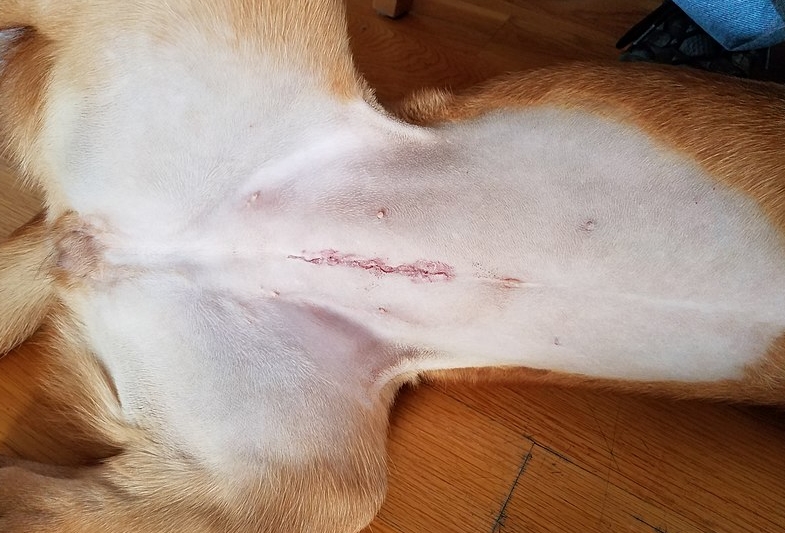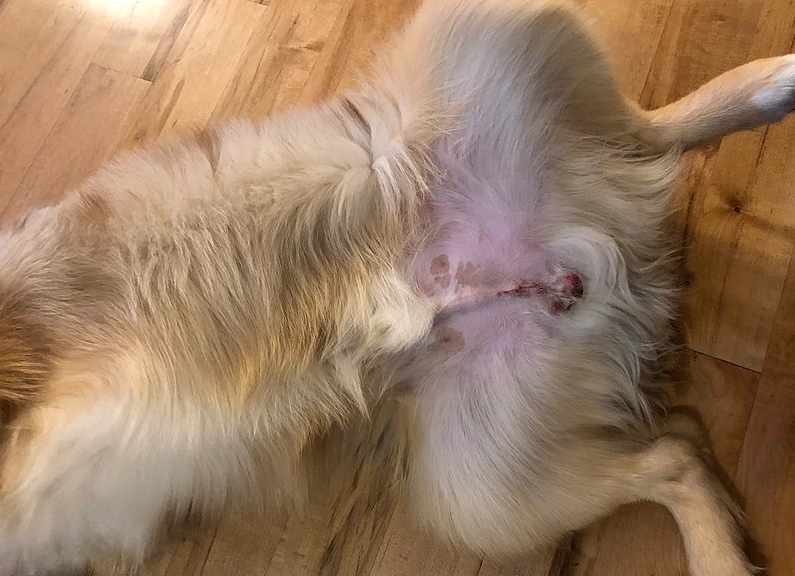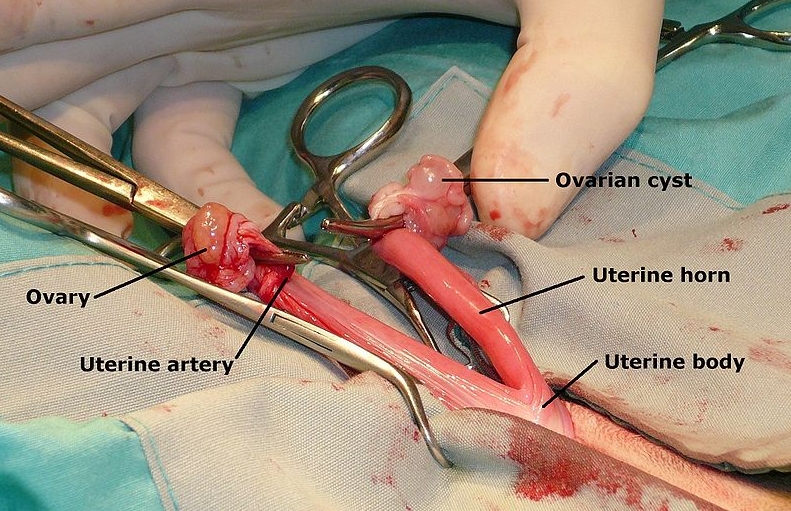Dog neutering is a surgical procedure that involves removing a male dog’s testicles or a female dog’s ovaries and uterus. This procedure is done to prevent dogs from reproducing, and it is a common practice among pet owners and animal welfare organizations.
Neutering is recommended by many veterinarians because it can offer several benefits for dogs. One significant advantage of neutering is that it can reduce the risk of certain types of cancer, such as testicular cancer in males and mammary gland tumors in females. It can also prevent reproductive health problems like pyometra, a serious infection of the uterus.
In addition to these health benefits, neutering can also improve a dog’s behavior and temperament. For example, neutered male dogs are less likely to exhibit aggressive behavior, and female dogs are less likely to go into heat, which can cause them to become anxious and restless.
Overall, neutering can promote better health and a longer lifespan for dogs. However, the decision to neuter your dog is a personal one and should be made after considering the potential benefits and drawbacks of the procedure. It’s important to consult with a veterinarian to determine the best course of action for your dog. Dogs: Since the Dawn of Time, Dogs were Man’s Best Friend!
Reduced risk of certain types of cancer
Neutering your dog can significantly reduce its risk of developing certain types of cancer. Male dogs that are neutered are less likely to develop testicular cancer, a highly malignant and aggressive cancer that can spread to other parts of the body. Additionally, neutered female dogs have a lower risk of developing mammary gland tumors, which can be malignant and potentially life-threatening.
In fact, studies have shown that the incidence of mammary gland tumors in female dogs is dramatically reduced when they are spayed before their first heat cycle. This is because exposure to hormones during heat cycles can increase the risk of these tumors developing.
By reducing the risk of cancer, neutering can help your dog live a longer and healthier life. However, it’s important to note that neutering may not completely eliminate the risk of cancer, and other factors such as genetics and environmental factors can also play a role.
If you’re considering neutering your dog, talk to your veterinarian about the potential benefits and risks. They can help you make an informed decision and ensure that your dog receives the best possible care.
Prevention of reproductive health problems

Neutering your dog can help prevent a variety of reproductive health problems. For female dogs, spaying can eliminate the risk of pyometra, a serious bacterial infection of the uterus that can be fatal if left untreated. Spaying can also prevent the development of ovarian and uterine cancers, which can be difficult to detect and treat.
For male dogs, neutering can prevent problems like testicular tumors, which can be aggressive and spread to other parts of the body. Neutering can also reduce the risk of prostate problems, such as enlargement or inflammation, which can cause discomfort and difficulty urinating.
By preventing these reproductive health problems, neutering can help your dog live a healthier and more comfortable life. It can also save you money on veterinary bills, as a treatment for these conditions can be expensive.
It’s important to note that while neutering can prevent some reproductive health problems, it may also increase the risk of others, such as obesity or urinary incontinence. It’s important to discuss the potential benefits and risks of neutering with your veterinarian to determine the best course of action for your dog.
Improved behavior and temperament
Neutering your dog can also positively affect its behavior and temperament. Male dogs that are neutered are less likely to exhibit aggressive behavior, including aggression toward other dogs and humans. This is because neutering reduces the level of testosterone in male dogs, which can make them less territorial and less likely to engage in dominance-related behavior.
Female dogs that are spayed are less likely to experience behavioral changes during their heat cycles, such as restlessness, whining, and aggression toward other dogs. This can make them easier to manage and less stressful for both the dog and its owner.
Neutering can also help prevent unwanted behaviors in dogs, such as roaming, marking territory, and humping. These behaviors can be frustrating for dog owners and may even lead to problems with neighbors or the law.
By improving behavior and temperament, neutering can make your dog a happier and more well-behaved companion. However, it’s important to note that neutering is not a cure-all for behavior problems and may not have an effect on certain types of aggression or anxiety. Consulting with a professional dog trainer or behaviorist may be necessary for addressing these issues.
Dog Training: Top 10 Dog Training Tips
Better overall health and lifespan

Neutering your dog can have a significant positive impact on its overall health and lifespan. By preventing reproductive health problems and reducing the risk of certain types of cancer, neutering can help your dog live a longer and healthier life.
In addition to the health benefits, neutering can also help prevent unwanted litters of puppies, which can contribute to overpopulation and the euthanasia of millions of dogs in shelters each year. By neutering your dog, you are helping to reduce the number of dogs in need of homes and promote responsible pet ownership.
Neutering can also improve your dog’s quality of life by reducing unwanted behaviors and improving their behavior and temperament, as discussed in the previous sections.
However, it’s important to note that neutering may not be appropriate for every dog, and the decision to neuter should be made on a case-by-case basis. Factors such as breed, age, and overall health should be considered when determining the best course of action for your dog.
neutering your dog can provide many benefits for their health, behavior, and overall quality of life. Consult with your veterinarian to determine if neutering is the right choice for your dog.
Cost Efficiency
When considering neutering your dog, it’s important to factor in the cost of the procedure. Neutering costs can vary depending on factors such as the size and age of your dog, as well as your location and the veterinary clinic you choose.
However, it’s important to consider the long-term cost savings that can result from neutering your dog. By preventing certain health problems, such as cancer and reproductive issues, neutering can save you money on veterinary bills in the future.
Additionally, preventing unwanted litters of puppies can also save you money in the long run. Raising a litter of puppies can be expensive, and finding homes for them can be time-consuming and challenging.
In some areas, there may be low-cost or free neutering programs available through animal welfare organizations or local government agencies. It’s worth researching these options to see if they are available in your area.
Overall, while the cost of neutering may be a consideration for some pet owners, the long-term benefits and cost savings can make it a worthwhile investment in your dog’s health and well-being.
What steps do dog owners need to take to neuter a dog?

If you decide to neuter your dog, there are several steps you can take to ensure the process goes smoothly and your dog has a comfortable and speedy recovery.
Consult with your veterinarian:
Your veterinarian can provide you with information on the best time to neuter your dog, as well as any pre-surgery requirements such as fasting or bloodwork.
Prepare for the surgery:
Ensure that your dog is up-to-date on all vaccinations and parasite prevention. Provide your dog with a comfortable and quiet place to rest after surgery.
Follow post-surgery care instructions:
Your veterinarian will provide you with specific instructions on how to care for your dog after the surgery. This may include limiting activity, keeping the incision site clean and dry, and administering medication as prescribed.
Monitor your dog’s recovery:
Watch for any signs of infection, such as swelling or discharge at the incision site. Contact your veterinarian if you notice any concerning symptoms.
Provide extra care and attention: Your dog may feel uncomfortable or lethargic for a few days after surgery. Provide extra love and attention to help them feel more comfortable and secure.
By taking these steps, you can help ensure a smooth and successful neutering procedure for your dog.
Dog Neutering: Downside and Risks
While neutering can provide many benefits, there are also some potential downsides and risks to consider:
Surgical risks:
As with any surgery, there is a risk of complications such as infection or reaction to anesthesia.
Behavioral changes:
Neutering can sometimes lead to changes in behavior, such as increased aggression or anxiety.
Hormonal changes:
Neutering can result in a decrease in certain hormones, which may affect your dog’s metabolism, bone density, and muscle mass.
No guarantee against certain health issues:
While neutering can reduce the risk of certain health problems, it is not a guarantee against all potential health issues.
Irreversible decision:
Neutering is a permanent decision and cannot be undone, so it’s important to carefully consider all factors before making a decision.
Overall, while neutering can provide many benefits, it’s important to weigh the potential risks and downsides before making a decision. Consult with your veterinarian to determine the best course of action for your individual dog. More info about Neutering – Wikipedia
Conclusion of Dog Neutering
Neutering your dog is a personal decision that should be carefully considered based on your individual dog’s health and circumstances. While there are potential downsides and risks to consider, the benefits of neutering can include reduced risk of certain types of cancer, prevention of reproductive health problems, improved behavior and temperament, and better overall health and lifespan. When considering neutering, it’s important to factor in the cost of the procedure, as well as the long-term cost savings that can result from preventing certain health issues. Consult with your veterinarian to determine the best course of action for your dog.
Every dog owner has a unique experience of their dog neutering, share with us how to care for and give support to our loving dog while we will go through the same steps. Your every comment is very valuable to us.